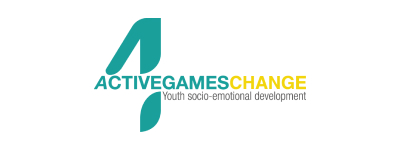
Active Games 4Change
Sport and physical activity learning environment for citizenship, emotional, social and e-competences training

Secured digital education system for vocational skills for youngsters in closed institutions
Timeframe
01/2021 – 11/2024
Get in touch

TRIANGLE aims to develop a digital platform where young people in closed institutions can develop formal and non-formal learning skills in a secure internet setting.
Teachers and students will learn how to use this environment and interact with practical trainers and external vocational training providers. Youngsters will develop a personal portfolio to increase their employment opportunities after leaving the institution, hence helping their social reintegration.
TRIANGLE is based on three core elements: People, Platform, and Programme. The project intends to bring these elements together and learn more about the synergy between these three Ps.

Ensure that institutionalised youngsters develop a broad set of skills that will boost their employability and competitiveness.
Create and implement an innovative, creative, and blended VET environment in closed institutions, targeting young people of different ages.
Strengthen the existing digital learning environments in all partner countries and match those settings with the level of digitalisation of the workplace.
Ultimately, the project aims to make the most of human capital across the EU.
Digital (secured) platforms with a safelist system and/or blocklist system for each institution.
Access to more than 50 educational tools, creative programs, 21st-century skill exercises, and skill lessons made by teachers with the support of the pupils.
Program-based collection of school grades by correctional officers, allowing the identification of inmates passible of being registered for vocational school certificates.
Build the structure for the creation of individualised digital portfolios that capture the competencies, motivation and skills of these pupils.
Develop training, learning, and practising activities targeting staff, youth, trainers and teachers.

Sport and physical activity learning environment for citizenship, emotional, social and e-competences training

Assessing the Risk of Isolation of Sentenced and Accused: Enhancing the Capacity of Correctional Services to Work with Convicted Children

Cross-sectoral awareness building on mental health needs in the criminal justice system and on release

Blended Learning Environment for European Prisoners

Bringing Safety on the Roads

Coding in prison as a valuable OUTside tool for employment

Taking Further Prisoners’ Education Projects in Using Dialogue as Preparing for Release

European Interaction Guidelines for Education Professionals when working with Children in Juvenile Justice Contexts

European Induction Support for Adult Learning Professionals to the Correctional Criminal Justice System

Fair predictions of gender-sensitive recidivism

European Framework of Competences for Community Professionals in Gang Environments

Promoting sustainability in prisons through green competencies, education, and pathways to employment

Identifying future capabilities for Community Policing

Key Competencies for Minor Offender Reintegration

Development and testing of a process chain for the placement of former detainees as specialists in the labour market

Peer Pro-Social Modeling in Probation

Preventing Emotional and Sexual Abuse Among Young People

A flexible, multidisciplinary and transnational VET model for the PROBATION services and practitioners

Strengthening the capacity of criminal justice professionals and volunteers

New sports method for prisons as a tool to support competency development, positive values, and reintegration

Systematic Transition from Prison into the Labour Market

Training of Refugee Offenders by Virtual Reality

Integrating Young Offenders Through the Blue Economy

Virtual reality for training inmates

Visualising the Future Through Training

Developing and Using Virtual Reality Technology for the Rehabilitation of Drug Users in Probation Services

Reducing Reactive Aggression through Virtual Reality